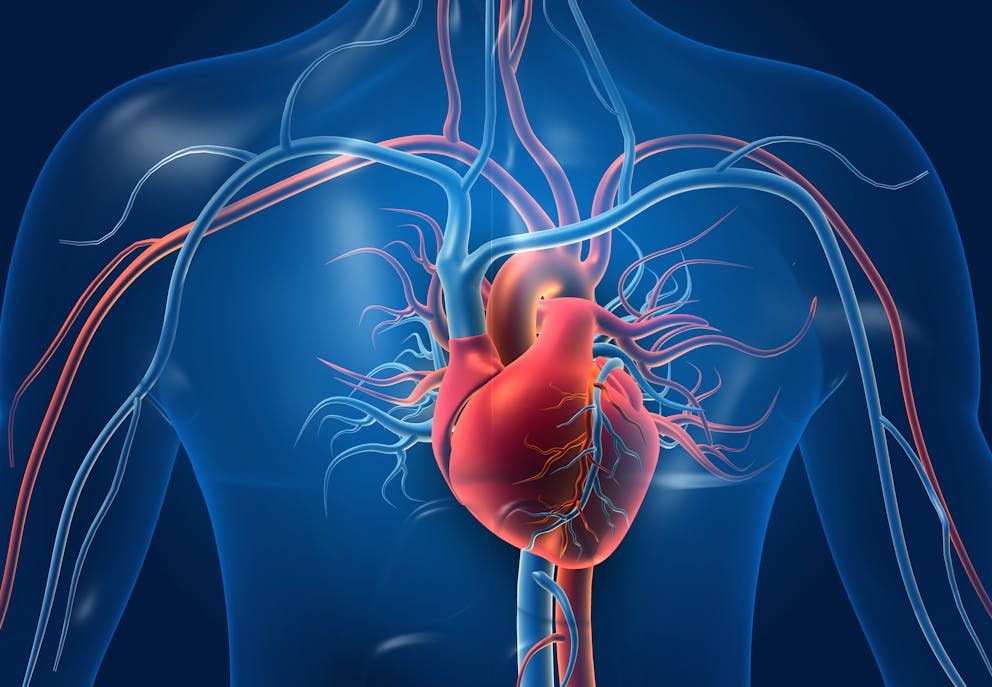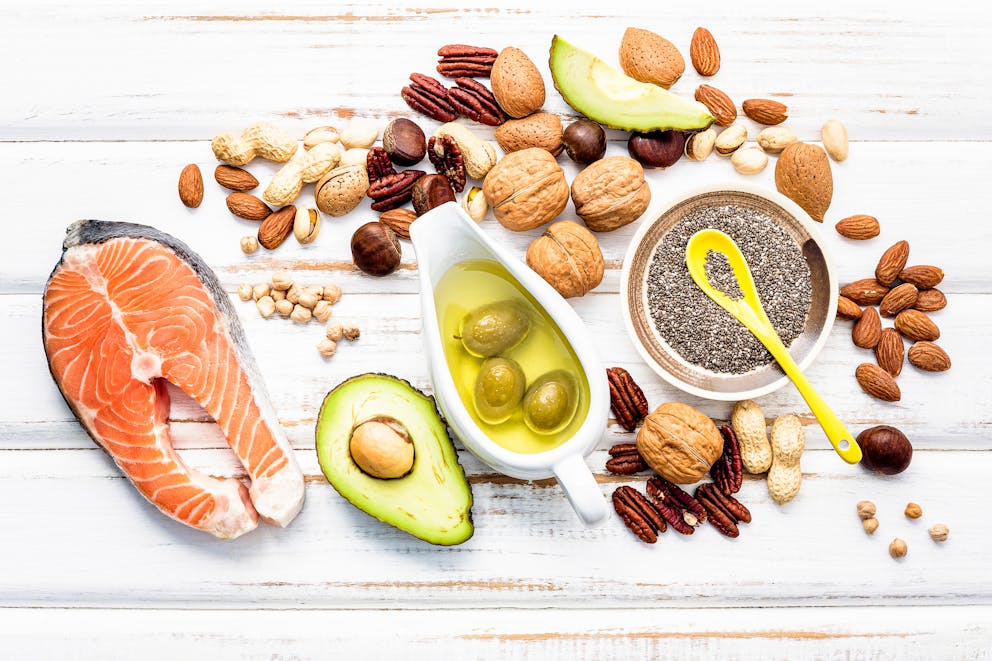What to Eat to Clean Out Your Arteries—Dr. Berg Explains
What to Eat to Clean Out Your Arteries Dr. Berg Explains
Imagine your body as a well-oiled machine, arteries like highways transporting vital resources. But sometimes, junk piles up—plaque in our arterial walls—and that's trouble.\
I've been down that road, worried about my heart ticking away under the strain of modern life and diets heavy on processed foods. I took control by turning to nature's pantry for answers.
This is where we dive into how certain foods can help clean your inner walls, keep your blood flowing smoothly, and support overall cardiovascular health.
We're unpacking everything from the leafy greens painting our plates with vitality to omega-3-rich fish cutting through inflammation like butter.
By the end of this read, you'll have pocketed some critical strategies for maintaining healthy arteries naturally. Let’s get your heart beating strong and steady again!
Understanding Artery Health and the Role of Nutrition
Your arteries are like highways for your blood cells, delivering nutrients and oxygen to every corner of your body. But when they're clogged, it's like a traffic jam in rush hour—nothing moves. The good news is that what you eat can help keep these vital pathways clear.
The Endothelial Layer and Its Importance
The inner lining of your arteries, known as the endothelial layer, isn't just wallpaper; it's an active player in regulating blood pressure and supporting immune function. Think about heart disease—it’s one heck of a troublemaker being among the top killers.
Now imagine toxins from poor lifestyle choices throwing a party on your artery walls—that's chronic inflammation for you.
To ensure this doesn't happen to you, give those bad habits the boot and start treating your endothelium with some nutritional wisdom.
Identifying Inflammatory Foods and Their Impact on Arteries
Picture your arteries as the highways of your body, with traffic running smoothly when everything's in order. But just like potholes can damage a car, certain foods wreak havoc on these critical pathways.
When you indulge in stress-inducing eats or overload on refined sugars and carbs, they act like tiny hammers chipping away at the arterial walls. This assault is not something to take lightly because it sparks inflammation that calls for repair.
The healing response is good news until it isn't; sometimes, our bodies get overzealous and create clots where there were none before—talk about an unwanted roadblock. Seed oils often join this inflammatory party, fueling the fire already started by gluten's irritating presence.
But don't fret—you're now armed with knowledge that lets you steer clear of dietary dangers so you can keep those arterial highways smooth and accident-free.

Diagnostic Tools for Cardiovascular Health Assessment
Peeking under the hood of your cardiovascular system is essential, and modern medicine gives us some slick tools to check out what's going on.
For example, a coronary artery calcification test can spot the chalky stuff that shouldn't be there—like finding unexpected frost on a car battery.
Moving along, if you're curious about how steady or jittery your heart rhythm is—think of it as checking the idle speed of an engine—a heart rate variability test will give you the lowdown. It's pretty nifty at predicting potential hiccups down the road.
Last but not least, sizing up those small, dense LDL particles in your blood—the ones that are sneakier than their fluffier counterparts—is crucial. They’re kind of like silent ninja warriors causing chaos where they land.
Keeping tabs on them helps doctors understand plaque’s sneaky ways before it throws a wrench into things.
The Role of B Vitamins in Arterial Health
Imagine your arteries are like highways for blood; they must be clear to keep traffic—oxygen and nutrients—flowing. But when homocysteine levels spike, it's like a pile-up on the freeway. High homocysteine is often a sign you're running low on B vitamins, specifically folate, B6, and B12.
This deficiency doesn't just cause backups; it increases your risk for heart attacks and strokes. It’s vital to get these vitamins from natural sources like leafy greens, as they help maintain smooth inner artery walls—the endothelium—and keep that blood flowing smoothly.
MTHFR Genetic Variation and Nutrient Absorption
You might need specific forms of these life-saving Bs if you've got the MTHFR genetic variation—a typical speed bump in nutrient absorption. Without them, protecting those arterial "highways" becomes much more complicated.
Finding the proper form means looking at methylated versions of folate or vitamin B12 supplements since they’re easier for your body to use effectively if MTHFR is playing the gatekeeper with your nutrition intake.
Nutrients Essential for Maintaining Healthy Arteries
Imagine your arteries as highways where blood cells are the cars zooming around. Just like a smooth road keeps traffic flowing without hiccups, certain nutrients keep your arteries clear to let that blood flow unimpeded.
One superhero in this saga is Vitamin K2, which studies show is crucial in preventing calcium from setting up camp in places it shouldn't—like your artery walls.
Then there's Vitamin E—a guardian of arterial flexibility. It doesn't get the limelight often, but it is the quiet ninja fighting off free radicals and keeping inflammation at bay within those vital passageways.
To make sure you're getting enough of these essential vitamins, gear up with foods like grass-fed dairy and dark leafy greens for K2, while nuts and seeds can be great allies due to their Vitamin E content.
But remember, variety is king; too much focus on one nutrient could leave others neglected—and we wouldn't want any rebellious elements blocking our highways now, would we?

Top Foods That Promote Clean Arteries
Fish swimming in the deep blue are not just picturesque; they're packed with omega-3 fatty acids that act like little plumbers, keeping your arteries free from inflammatory blockages. Imagine salmon and sardines as your heart's allies in the battle against inflammation.
Omega-3 Rich Fish for Fighting Inflammation
Eating fish rich in omega-3s is like sending a peacekeeping force into your body to calm inflamed tissues. These fats keep cell walls flexible and blood flowing smoothly, making them essential players on your team for heart health.
If you've ever admired how olive oil gives salads a luxurious taste, you'll love what extra virgin olive oil does inside your body. It works magic by nudging bad cholesterol aside and inviting good cholesterol to clean up the arterial pathways.
Extra Virgin Olive Oil as a Heart-Healthy Fat
Incorporating this liquid gold into meals can make more than just flavor pop—it helps maintain smooth inner artery surfaces.
Kale might be king of leafy greens for memes, but let's not forget its cousins—spinach, chard, and arugula—all decked out with nutrients that shield our vessels from harm.
Dark Leafy Greens' Role in Vascular Protection
Dishing up these verdant veggies provides an arsenal of antioxidants fighting off unwanted invaders trying to stick around in our arteries. Let's give those greens some credit where it’s due.
Parmigiano cheese isn't just fancy pizza topping material; it brings vitamin K2 into play, which is pretty much like having a security guard ensuring calcium doesn’t loiter around artery walls, causing trouble.
The Significance of Vitamin K2-Rich Cheeses
This nutrient acts less like dairy and more like a superhero when preventing calcium deposits where they don't belong—in our arteries instead of bones.
Nutritional yeast may sound about as exciting as watching paint dry, but trust me: sprinkling this B-vitamin powerhouse onto popcorn or pasta dishes could jazz things up way beyond taste buds
—it energizes red blood cells so oxygen can get delivered without any detours caused by plaque build-up along vessel linings.
We’re talking full-fledged support for optimal circulation here. Now, treat yourself right with these life-affirming eats because who knew cleaning out arteries could be such a delicious business?
Conclusion
So, let's boil it down. Foods to clean out arteries are your heart's best friends. They cut through the bad stuff and keep you ticking right.
Eat that omega-3-rich fish; it fights inflammation like a champ. Drizzle on some extra virgin olive oil for that heart-happy fat.
Chow down on dark leafy greens and vitamin K2 cheeses—they're not just tasty, they're artery superheroes. And don't forget nutritional yeast for its B vitamin boost.
It's simple: these foods aren't just good eats; they're lifesavers in disguise—working overtime to protect your pump.
You've got this! Stock up, eat smart, and here’s to clear arteries and a strong heartbeat!
Supporting Data
https://www.nytimes.com/2019/09/30/health/red-meat-heart-cancer.html
Previous blog
The Best Diet & Exercise for Stubborn Belly FatTags

Popular
08/21/2024
53.6K views
02/23/2025
45.4K views
11/18/2024
270.1K views
03/18/2024
11/21/2022




